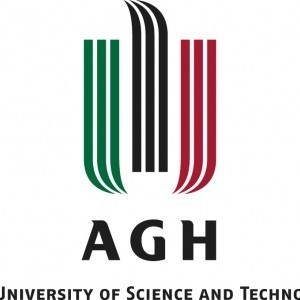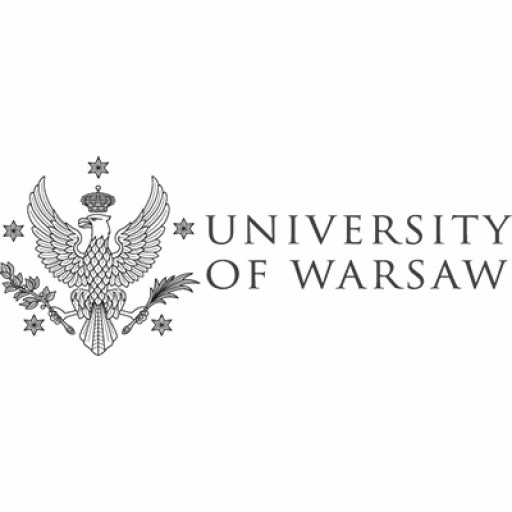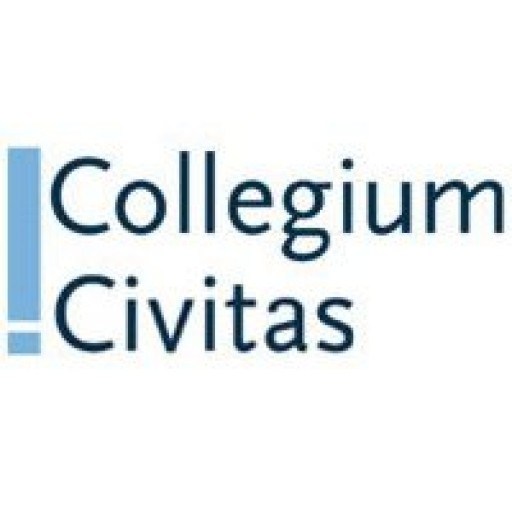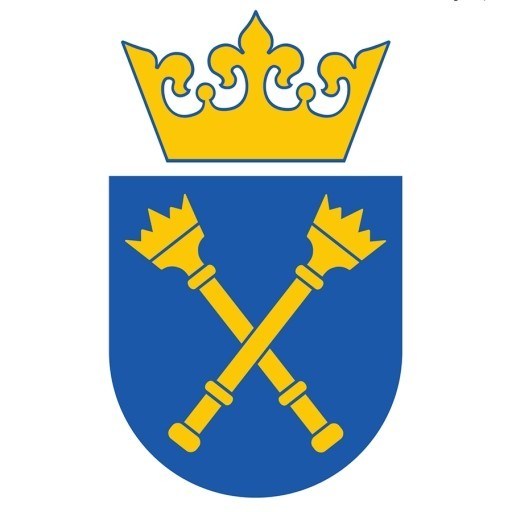Photos of university / #agh.krakow
The Electronics and Telecommunications: Computer Network Equipments and Systems programme at AGH University of Science and Technology offers students an in-depth education in the design, implementation, and management of modern computer networks and telecommunications systems. This programme is tailored for those who are passionate about developing innovative solutions to ensure efficient and secure data transmission across diverse communication infrastructures. Throughout the course, students acquire comprehensive knowledge of network architectures, protocols, and hardware components essential for building reliable communication systems. The curriculum covers a wide range of topics, including digital signal processing, network security, wireless and mobile communication technologies, and system integration. Students gain practical skills through laboratory exercises, project work, and internships with industry partners, providing them with real-world experience and preparing them for successful careers in telecommunications, network engineering, and information technology sectors. The programme emphasizes both theoretical foundations and hands-on application, ensuring graduates are well-equipped to tackle the evolving challenges of network design and maintenance in an increasingly connected world. Additionally, students have opportunities to specialize in areas such as network security, cloud computing, or embedded systems, allowing for tailored academic development aligned with industry demands. Graduates of this programme are highly sought after by telecommunications companies, internet service providers, technology firms, and research institutions. They are prepared to work as network administrators, system integrators, security specialists, or R&D engineers. The international recognition of AGH University and its strong links with industry ensure that students receive a high-quality education that combines academic excellence with practical relevance, opening doors to numerous career pathways in the rapidly expanding field of electronic communications and computer networking systems.
The Electronics and Telecommunications: Computer Network Equipments and Systems program at AGH University of Science and Technology offers comprehensive education in the design, implementation, and management of modern computer networks and communications systems. The curriculum is designed to meet the increasing demand for skilled specialists capable of developing advanced networking solutions for various sectors, including telecommunications, data centers, and enterprise IT environments. Students gain a thorough understanding of network architecture, protocols, and security measures, enabling them to develop resilient and efficient communication systems.
Throughout the program, students explore topics such as digital communication techniques, network hardware components, and wireless communication systems, emphasizing both theoretical foundations and practical applications. The coursework includes hands-on laboratory exercises where students work with real-world equipment, configuring routers, switches, firewalls, and other network devices, thus gaining vital skills in network installation, maintenance, and troubleshooting. The program also covers topics related to cloud computing, virtual networks, and the emerging Internet of Things (IoT), preparing students to adapt to technological advancements in the field.
Additionally, students are introduced to the principles of cybersecurity relevant to network systems, learning how to protect data integrity, ensure confidentiality, and prevent unauthorized access. The curriculum fosters critical thinking and problem-solving abilities, encouraging students to design innovative solutions tailored to specific organizational needs. Collaboration and teamwork are integral parts of the program, often involving project-based assignments that simulate real-world networking challenges.
Graduates of this program are equipped to work in a variety of roles, including network engineers, system administrators, security specialists, and telecommunication consultants. They are prepared to pursue careers in telecommunications companies, IT service providers, government agencies, and multinational corporations. The program emphasizes continuous learning and adaptation, reflecting the rapid evolution of networking technologies and the importance of staying current with industry standards and best practices.
Overall, the Electronics and Telecommunications: Computer Network Equipments and Systems program at AGH University provides a solid foundation in both theoretical knowledge and practical skills, ensuring that graduates are well-prepared to contribute to the development and maintenance of advanced communication infrastructure worldwide.
The Electronics and Telecommunications program with a specialization in Computer Network Equipments and Systems at AGH University of Science and Technology requires candidates to possess a strong foundation in mathematics and physics, demonstrating analytical and problem-solving skills essential for designing, implementing, and managing complex network systems. Applicants should have a comprehensive understanding of basic electronics, digital systems, and communication principles to succeed in this interdisciplinary field. The curriculum emphasizes theoretical knowledge and practical skills, including courses in signal processing, network architecture, data transmission, and cybersecurity, aimed at preparing students for challenges in modern telecommunications. Students are expected to engage in laboratory work, where they learn to configure and troubleshoot networking hardware and software, gaining hands-on experience with routers, switches, and network security tools. Additionally, the programme includes modules on embedded systems and software development, enabling graduates to develop innovative solutions for network management and automation. The program encourages the development of teamwork, communication, and project management skills through group projects and seminars, reflecting the collaborative nature of modern engineering environments. To graduate, students must complete a series of theoretical exams, practical assessments, and a final project that demonstrates their ability to apply acquired knowledge to real-world problems in computer networking and telecommunications systems. Entry requirements typically include a secondary school certificate with strong performance in relevant subjects such as mathematics, physics, and computer science, along with proficiency in English if applicable. The university provides updated and specific prerequisites on their official website for prospective applicants. Throughout the course, students benefit from advanced laboratories equipped with modern telecommunications hardware, enabling them to stay abreast of technological developments in network equipment and systems. The program aims to produce highly qualified engineers capable of designing, analyzing, and maintaining sophisticated communication networks, contributing to the development of telecommunications infrastructure within Poland and internationally. Graduates are prepared for careers in telecommunications companies, network service providers, research and development, and information technology sectors, with opportunities for further specialization in areas like network security, wireless communication, and cloud computing. The programme’s curriculum is regularly reviewed to align with technological advances and industry standards, ensuring graduates’ skills remain relevant and competitive in the rapidly evolving telecommunications landscape.
Financing studies in the field of Electronics and Telecommunications: Computer Network Equipment and Systems at AGH University of Science and Technology are primarily supported through a combination of tuition fees, government funding, and scholarship programs. Tuition fees are established according to the regulations set by the university and may vary depending on the student’s nationality and chosen study mode. Polish students typically benefit from subsidized education, whereas international students are required to pay tuition fees that are set annually. The university also offers a range of scholarship opportunities aimed at supporting students financially, including merit-based and needs-based scholarships. These scholarships are awarded based on academic excellence, extracurricular achievements, and financial need, with detailed eligibility criteria provided by the university's student office.
In addition to scholarships, students can apply for various forms of financial aid, including student loans and grants, available from governmental or private sources. The university collaborates with national programs designed to promote higher education funding, which may include student loan schemes with favorable repayment terms. Work-study options may also be available for students, allowing them to combine part-time employment with their studies to earn supplementary income.
Furthermore, students enrolled in this program have access to funding opportunities related to research projects, internships, and industry collaborations, which sometimes include financial support or stipends. International students generally have access to dedicated scholarship programs from the Polish government, the university, or other organizations supporting foreign students. The university's international office provides guidance on financial planning and available funding sources, ensuring students are well-informed about how to finance their education throughout the duration of their studies.
Overall, the financing of studies in Electronics and Telecommunications at AGH University emphasizes comprehensive support mechanisms aimed at making higher education accessible and affordable for both Polish and international students. The diverse range of financial aid options serve to alleviate the economic burden and enable students to focus on their academic and professional development.
The Electronics and Telecommunications: Computer Network Equipment and Systems program at AGH University of Science and Technology offers students a comprehensive education in the design, analysis, and management of modern computer networks and telecommunications systems. This program aims to equip students with practical skills and theoretical knowledge necessary to develop, deploy, and maintain advanced network infrastructures, which are vital for the functioning of various sectors including industry, public services, and communications. Students will learn about the architecture and protocols of different network types, including local area networks (LAN), wide area networks (WAN), and wireless networks, as well as the hardware components such as routers, switches, and other network devices. The curriculum typically covers key topics like network security, data transmission, network configuration, and management, ensuring graduates are prepared to address current challenges in information technology and telecommunications. Emphasis is placed on hands-on training through laboratory exercises and project work, which enables students to apply theoretical concepts to real-world scenarios.
The program also delves into computer system design, focusing on embedded systems, signal processing, and the integration of various hardware and software components for effective communication systems. Students are taught to analyze system performance, troubleshoot network issues, and implement innovative solutions for efficient data transmission and processing. Collaboration with industry partners and participation in research projects are encouraged to enhance practical skills and stay abreast of the latest technological advancements. Graduates of this program find employment in areas such as network engineering, telecommunications management, system administration, cybersecurity, and research development. They are well-prepared to continue their education at the postgraduate level or pursue certification in specialized areas of telecommunications and network engineering. Overall, the program aligns with industry standards and responds to the growing demand for specialists capable of supporting the development of existing and emerging communication technologies.







